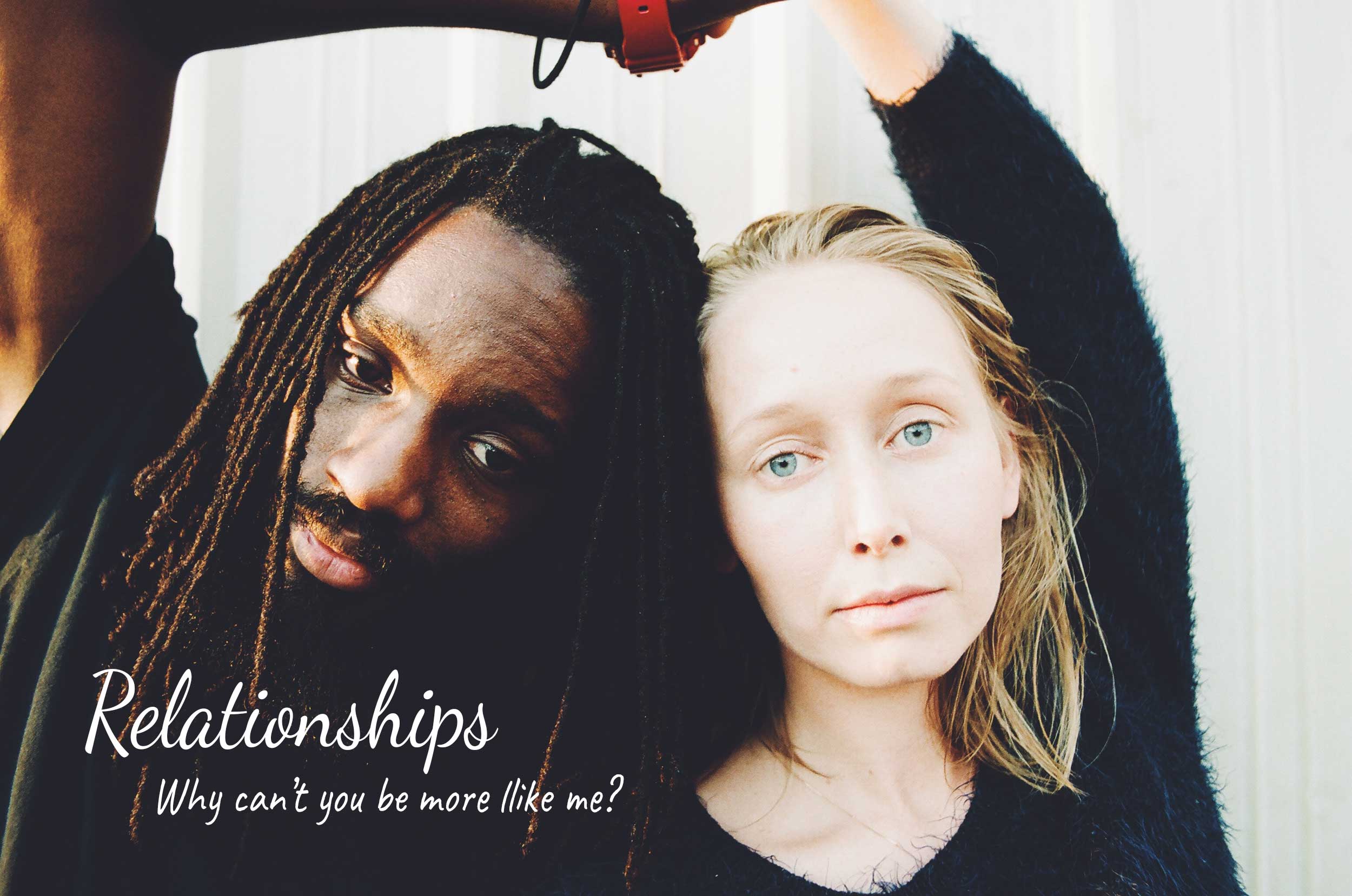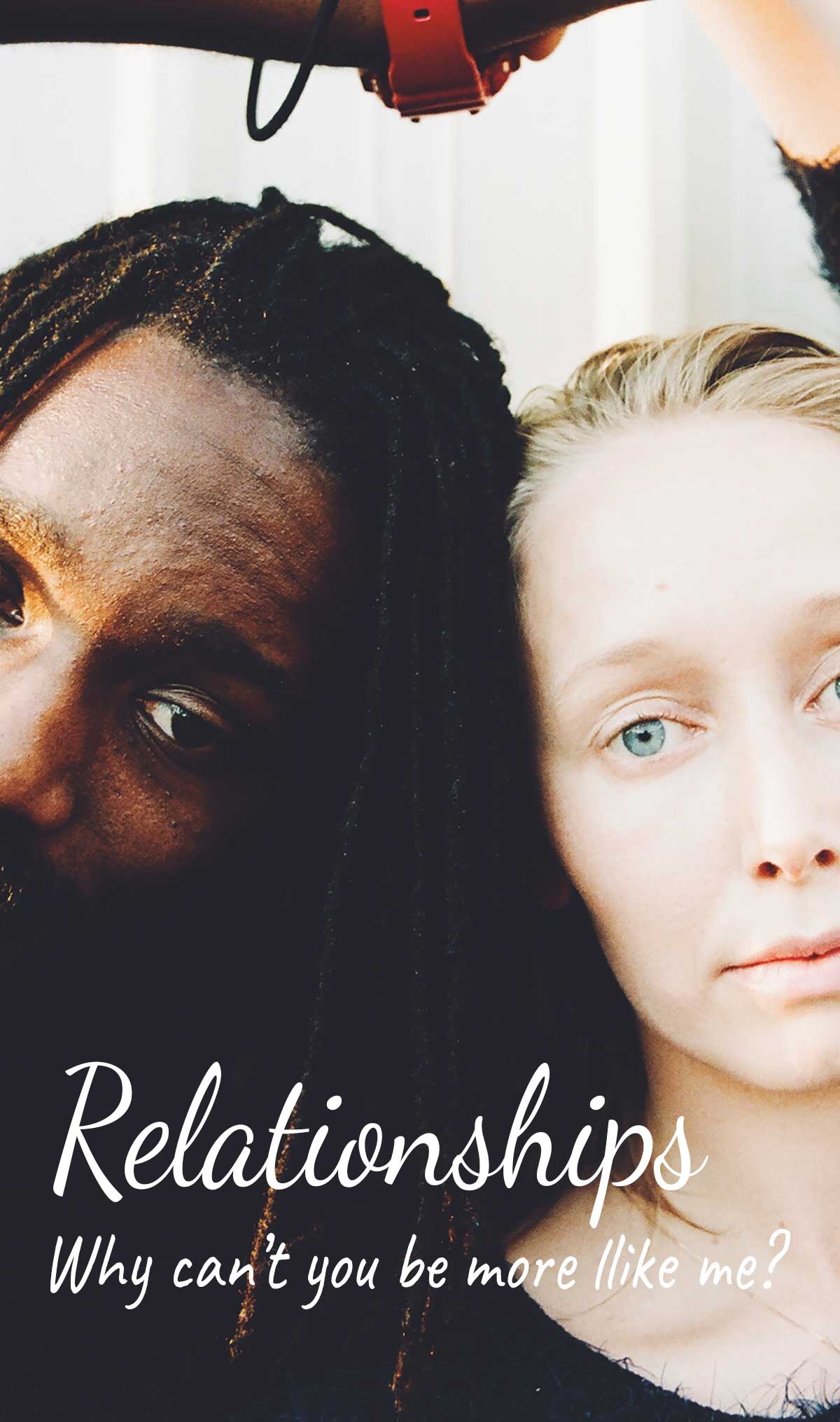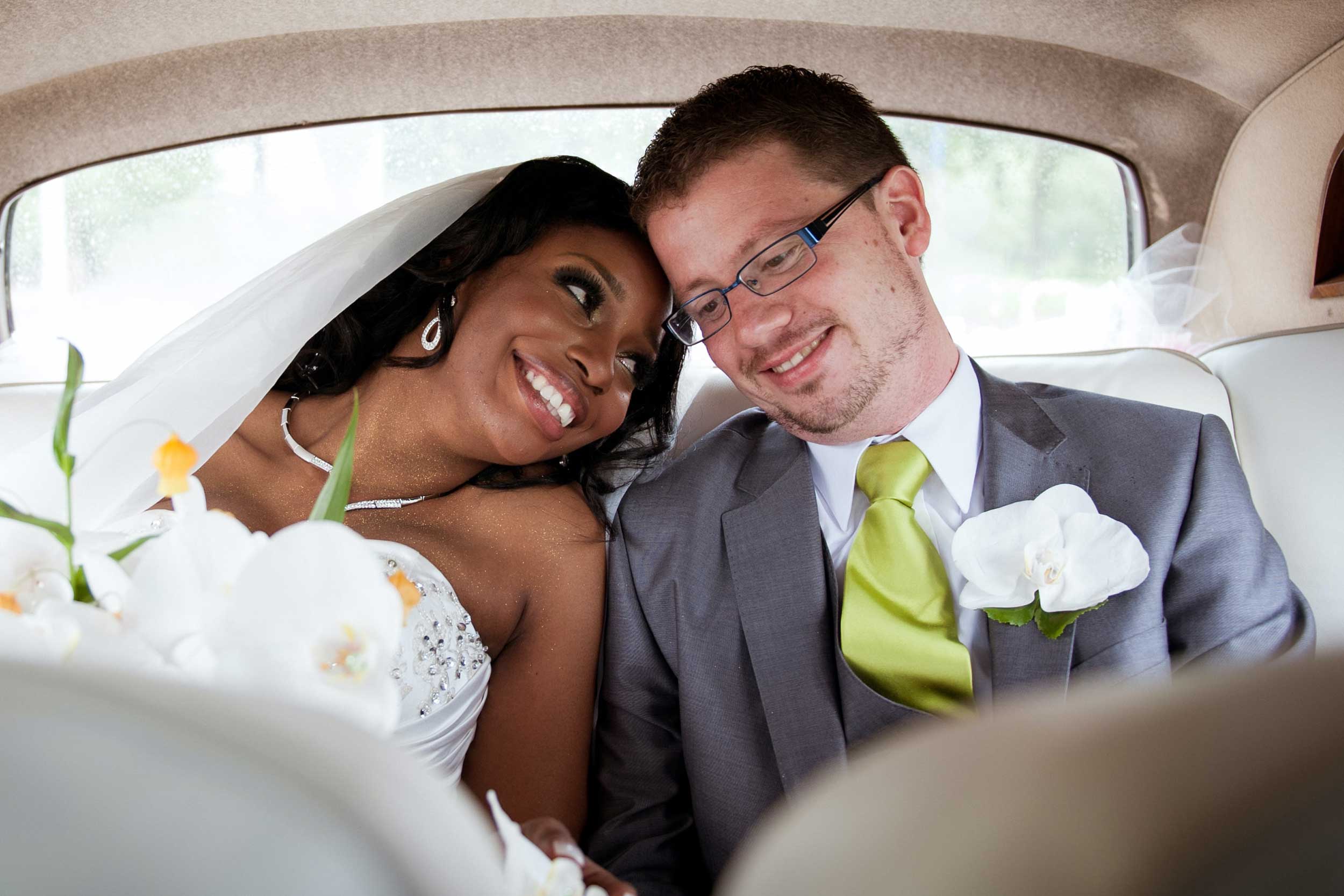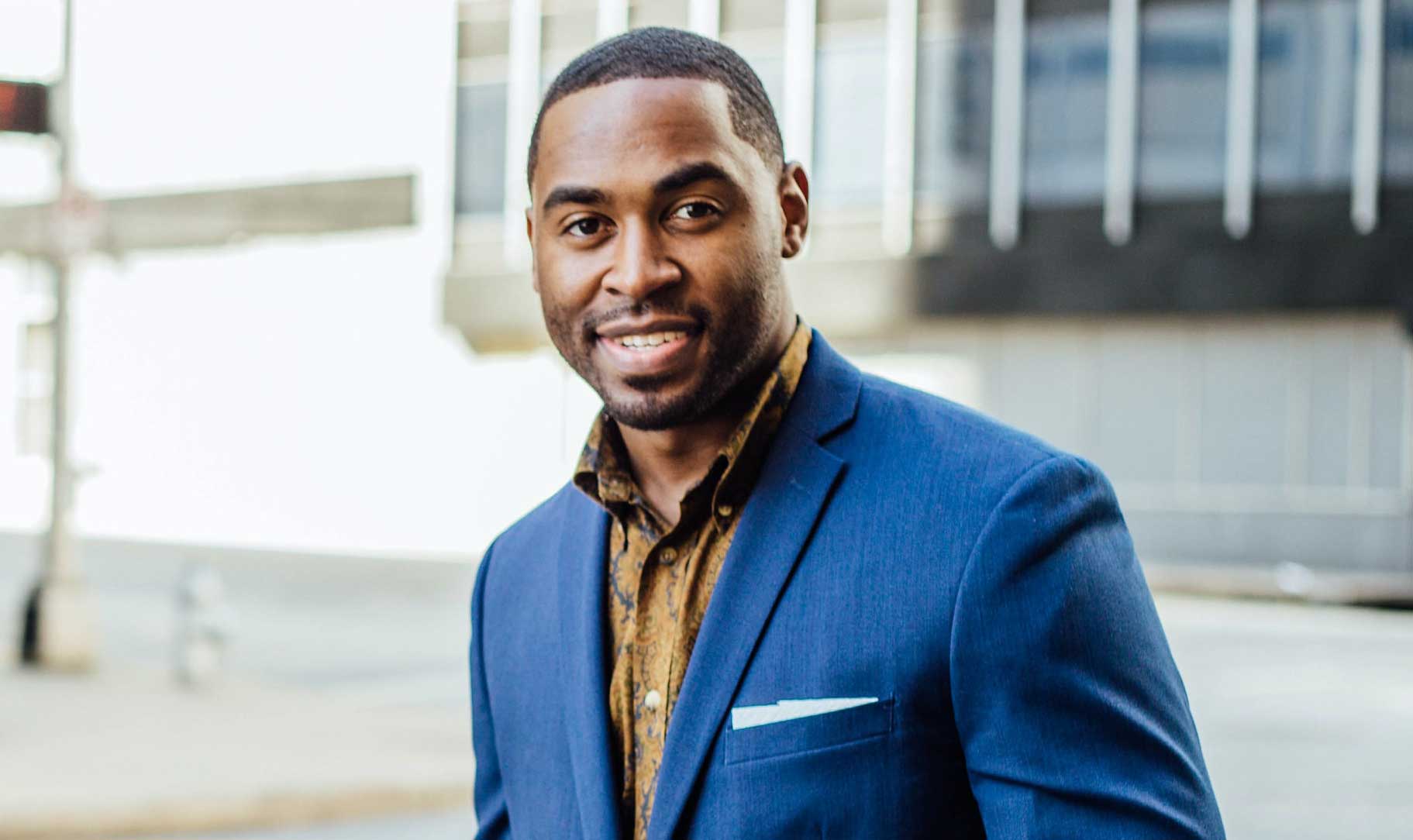


It’s an old cliché— “Opposites attract.”
Being with a totally different personality can be fascinating, and can make you feel complete and balanced out.
Yet in stressful times, your opposite partner can react so differently that you wonder if you know them and you might wish they could be more like you.

This course explores different personality types and how they can work together.
Personality types
There are billions of unique personalities—as many as there are people. Yet they can be classified into types, just as millions of shades are combinations of three primary colours.
Psychology offers many ways to understand personality, but we will use simple classifications as old as Hippocrates, the Greek physician and philosopher. He described four basic types.
• Socialiser (Hippocrates called them Sanguine)
• Executive (Choleric)
• Creative (Melancholic)
• Thinker (Phlegmatic)
Using these names does not mean that only Thinkers can think, or only Socialisers enjoy people. It simply describes a style or activity that comes most naturally to each type.
As you read the following description of their strengths and weaknesses, you might see yourself or others clearly—or, if not, you may want to take the quick personality test attached before you go on.
Some people are classics of one type, but most of us are mainly one type plus one other.
Who are these people?
Let’s put faces to these types by imagining a party.
Sue the Socialiser is talking to a large group of people who enjoy the jokes, the animated gestures, the exciting stories of her busy life.
Callum the Creative sneaks into the room feeling self-conscious, wishing he were back at his computer creating an animation. Then he sees Sue and feels relief that he knows someone.
He sneaks into her group and she gives him a huge grin, which makes him feel accepted and he admires her confidence.
In another group, Eric the Executive is gesturing with one hand to make a point about no-nonsense strategy, clearly in charge of the group.
In Eric’s group, Tom the Thinker is quietly enjoying Eric’s ideas and scanning the room, observing what is going on.

SOCIALISER
Sue
• Optimistic, positive
• Friendly, warm
• Good conversationalist
• Good-natured
• Forgiving
• Self-centred
• Weak-willed
• Emotionally unstable
• Unorganised
• Unreliable
• Humorous

EXECUTIVE
Eric
• Leader
• Competitive
• Achiever, go-getter
• Hard
• Angry
• Clear, quick thinker
• Bossy, people user
• Decisive, strong-minded
• Practical
• Organised
• Self-confident

THINKER
Tom
• Even-tempered
• Sarcastic
• Reliable
• Emotionally insensitive
• Avoids conflict
• Logical
• Stubborn
• Quiet
• Fearful
• Consistent
• Realistic
• Slow, lazy

CREATIVE
Callum
• Artistic
• Perceptive
• Sensitive
• Moody
• Analytical
• Suspicious
• Loyal,
• Revengeful dedicated
• Pessimistic
• Notices details
• Critical
• Quiet, gentle
• Careful
What do they think of each other?
Sue thinks Callum is deep, artistic and fascinating because he never interrupts, but wonders why he’s so moody and gloomy. She admires Eric’s leadership but finds him overbearing and has complained to him that some of his decisions are too hard on people.
She likes that Tom is so patient and emotionally stable, even though he can be stuffy and boring at times.
Callum admires Sue’s confidence and wit and how she always cheers him up. He finds Eric heartless and uncreative, but realises he needs his skills. He enjoys deep discussions with Tom.
Eric thinks Tom is intelligent and wise, but a little lazy. He thinks Sue is entertaining and useful for motivating people, but too emotional and vain to be a real leader.
Tom finds Sue a lot of fun but a little shallow and wild at times. He thinks Callum is moody and illogical but quite brilliant and loves improving his ideas.
He enjoys Eric’s drive and accomplishments, although he prefers a slower pace himself.
How opposites attract
Put simply, you admire in your opposite qualities you do not have.
They are bold when you are scared, or funny when you are serious, or stable when you are moody, or wise when you are confused.
You want those qualities on your team.
You also find the different qualities fascinating, as exotic as travel.
Of course, you are most attracted if this different person has similarities with you in their values and aims.
Your decision to marry is influenced by many other factors, such as family experience, parental advice, socio- economic group, educational level, race or national origin and physical attraction.
Yet personality opposites explain a large part of why people “click”.
Often, an introvert links up with an extrovert. Socialisers and Executives are extroverts, which means they recharge their batteries by being with people.
Creatives and Thinkers are introverts, which means they feel energised by spending time alone. Let’s say Sue the Socialiser (extrovert) marries Callum the Creative (introvert).
Early in the relationship, Callum admires her social skills and enjoys the new feeling of confidence when he is out with her. Sue admires his depth and loves that he is a good audience. But after a while, Callum no longer enjoys going out so much.
He wants to do what comes naturally—be alone or just with her. Sue feels bored and stifled, and can’t wait to go out.
She wonders if he finds her fun and attractive anymore. He wonders if she loves him when she is so friendly to so many other people. Callum feels pressured and withdraws.
The more they push, the more the other person feels unappreciated. He complains that her wardrobe is messy and she sarcastically asks if he has anything better to do than keep his sock drawer in colour-coded order.
Every small issue seems to be loaded with emotion, another battle in a war of personal styles. Some relationships end here, because it all seems too hard.
Other people are committed to making it work, so they talk it through, with help from a good book or a counsellor, if necessary.
Sue and Callum go out for dinner and talk it over calmly, not blaming or demanding, but trying to understand and find win-win solutions.
They agree not to make impossible demands that the other person must meet all their needs—sometimes she will go out with other friends while he plays computer games at home alone or with a close friend.
They feel they can now be themselves, and each feels much more willing to give to the other and to make small compromises to meet each other’s needs—sometimes Sue will stay home and do his thing, sometimes he will go out with her.
The key is to find ways of discussing differences that are non-blaming.
(See our course, “Conflict Management”.)
Change for me
Trying to change your partner is perhaps the most common mistake in marriage.
It’s so tempting! You feel you have the most logical and righteous reasons to change them. They should be more organised or more spontaneous.
They should feel things more deeply or be less emotional. It’s for their own good! But marriage is not a licence to chisel away on your Pygmalion project to carve your perfect partner who looks—surprise, surprise—just like you.
For one thing, that’s impossible. A leopard cannot change its spots and no amount of nagging—or even psychotherapy—will change a person’s basic personality type.
For another, it is arrogant. Who are you to change them? You have your biases, your blind spots, your faults.
You are not God, so why try to re- create someone in your image?
The more you understand yourself, the less you need to manipulate your partner into being what you want.
You realise that you deserve love exactly as you are, with your strengths and weaknesses.
And you realise that your partner deserves the same unconditional love.This is the point of the Christian teaching to “love your neighbour as you love yourself.” A belief that God makes people different, and prizes individuality and free choice, can help you value people more.
The attempt to change someone actually does damage.
It says, “You are not what I want.” This can pile shame and scorn onto weak areas of which they may already be painfully aware, which discourages their own efforts to grow.
But if you have the wisdom and strength to resist the temptation to change them—if you keep quiet and try to think about their good points with appreciation—then they will feel loved and secure enough to be their best self.
You may never fully understand them, but that stops a relationship becoming totally predictable. And you don’t need total understanding to appreciate them.
If you fell in love with a stable, thoughtful, even- tempered person because they rounded you out, it’s hardly fair to criticise them later for not being as adventurous and spontaneous as you.
If you married a dynamic, decisive leader, it’s unproductive to call them unfeeling because they don’t cry at romantic movies with you.
Do you really want them to be just like you?
If you met your clone, you wouldn’t marry them in a fit. It’s the differences that attracted you to your partner in the first place.
I guess you have a choice: Will you focus on the weak spots of your partner?
Or will you keep reminding yourself of their great qualities, benefit from their strengths to balance yourself, and so feel more in love and appreciative of them?
Improve for yourself
Your own personality was probably noticeable from your earliest childhood if your parents knew how to look. It seems to be there before life events or personal choices have affected you much at all. When you notice your faults, you have a few options.
- Pretend they are strengths. “I get angry when people are stupid— and that’s good because it makes them wake up to themselves.” This unrealistic view may protect a weak ego, but it means you will go on hurting people you love and will find it hard to get as close.
- Make excuses. Smile indulgently and say, “Oh, that’s just me. All great artists are moody.” But your personality is the hand you are dealt, while your character is how you choose to play it. Your character develops as you make choices based on your values.
- Blame your partner. “If you weren’t so pushy, I wouldn’t be so stubborn.” But maturity demands that we take responsibility for our own part in the relationship.
- Give up on yourself. If people at home or school called you silly or useless, you may struggle with these feelings into adult life. You may understandably be easily crushed, even by helpful feedback.
- But remember, a canvas is valued by who paints it. You can see yourself (and your partner) as masterpieces in the making by a very creative God who makes no mistakes, and you are thus of infinite value.
- Face your need to grow. “I will try to be on time picking you up no matter what else I feel like at the time.” This growth requires self- awareness and self-discipline motivated by love. It is also helpful to have spiritual values that encourage you to develop good qualities, and also makes you feel totally loved and approved of as you are.
Self-awareness means being conscious of your:
• Senses (what you see or don’t see, hear or don’t hear, smell, touch, taste)
• Feelings and emotions (basic ones are love, hate, anger, fear, grief, joy)
• Thoughts (opinions, values, assumptions, beliefs, knowledge)
• Wants
• Actions (past, present and future)
• How your body feels (frowning, tight brow, knot in stomach, light,
loose)
All of these are unique to you. The more you understand them, the more you understand yourself and your reactions and the more you can be your best self in relationships, rather than just pretending to be someone you think they might like.
Many people try to find “the perfect partner”, but the key is to develop yourself to live at the full potential for which you were created. This is the best gift you can bring to your marriage.
And so…
We have seen that personailities can be loosely classified into four broad types and combinations of these. Each one has strengths and weaknesses, but the aim is to focus on your partner’s strengths so that you remember why you fell in love with them at first, and so they can grow in an atmosphere of love.